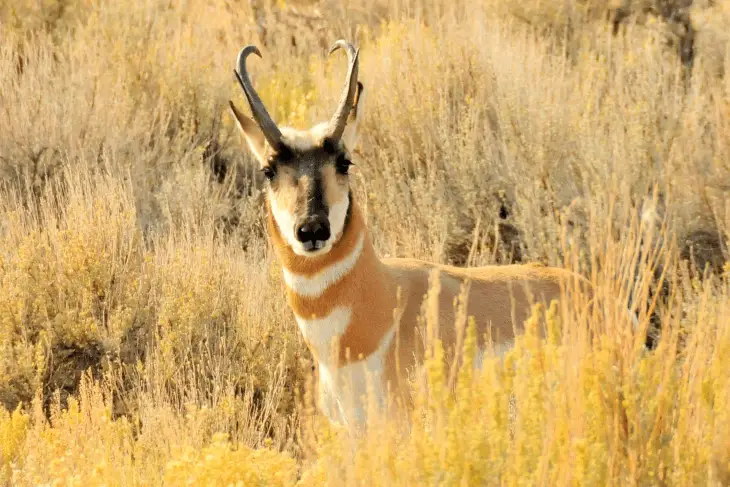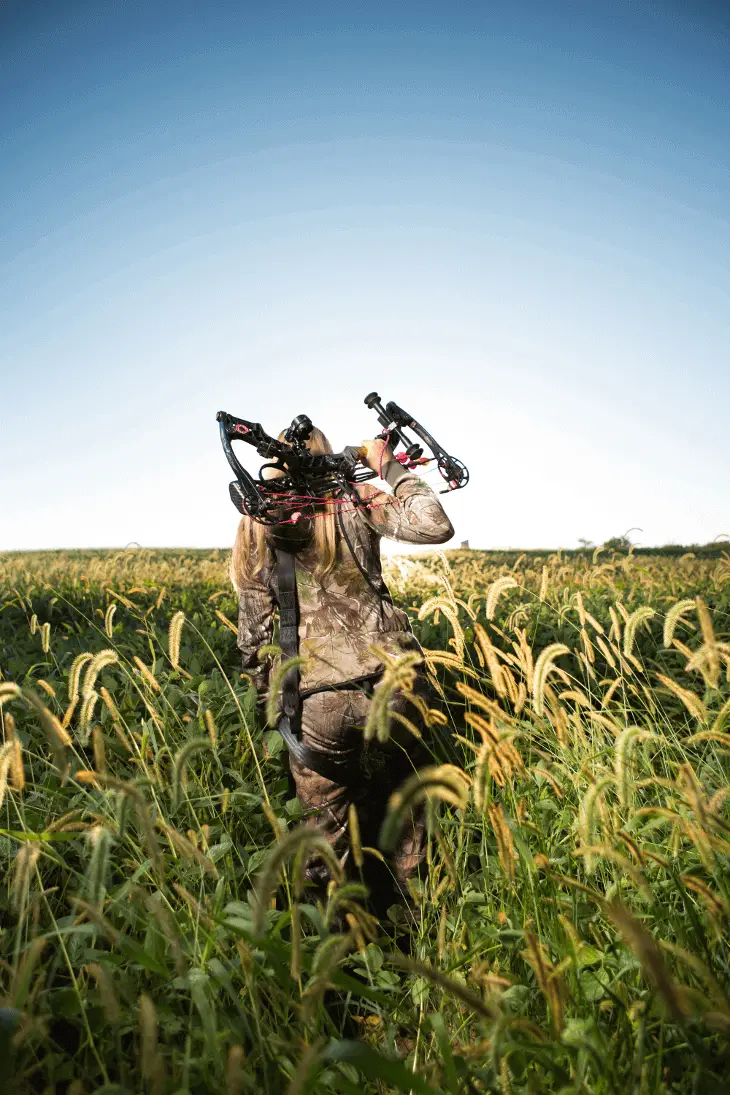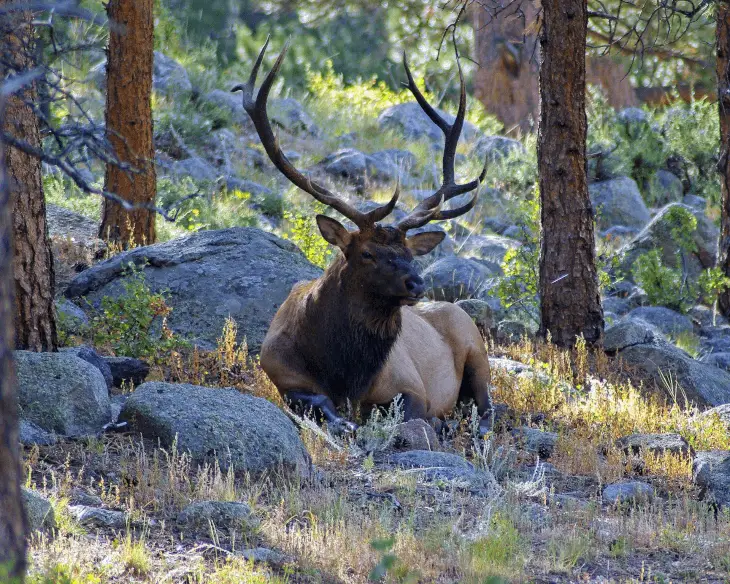If you’re new to bowhunting—and we’re thrilled to find that bowhunting, and hunting in general, is growing in popularity—you’ve probably got some questions when it comes to hunting licenses. You may have visited your state’s website, found your way to the section that talks about hunting, and then felt absolutely and totally overwhelmed at the sheer vastness of information regarding licenses.
It’s OK. We’ve been there. It truly is complicated, and some states have dozens of different types of hunting licenses you can buy, and it can take an incredible amount of time to figure things out.
So, as always, we’re here help, and this post is our helpful guide for beginner bowhunters who looking to get their first bowhunting license. We’ll introduce some of the terms you’ll see on your state’s hunting license page, discuss some of the concepts you’ll need to know about, and hopefully “de-mystify” the process.
We won’t tell you exactly how to get your license—each state has a very intricate process for providing licenses, and you’ll have to follow their instructions—but hopefully this post will give you all the information you need to understand the licensing process, and how to navigate it.
We’ll start at the very beginning:
You Get Your Hunting License from Your State
While there are plenty of federal laws that regulate hunting, hunting licenses—and that includes bowhunting licenses—are issued by state governments, and the rules and regulations that determine how you can hunt are determined by your state governments.
That makes sense—because every state has a unique terrain and environment, and a unique population of deer, elk, bear, coyote, and so on—each state regulates how many hunting licenses they issue, and to whom.
The Process Is Basically the Same in Most States…
…even though it seems really confusing at first. Basically, you will need to:
- Figure out the type of license you want to buy;
- Figure out if you need any additional permits;
- Take and pass a hunter education course located in your state (and we’ll talk about that in a minute);
- Purchase your hunting license / permit; and
- Provide identification (usually an up-to-date driver’s license) and provide all relevant personal info.
To purchase your actual license, you can usually go to either at a license issuing agent location (usually a camping store / outfitter / something like that), or online or by phone. When you get your license online or by phone, there’s usually a processing period, whereas if you get your license at an issuing location, you can usually walk out of the location with the license.
What are Those “Additional Permits”?
As we mentioned earlier, every state is different, but many states offer a basic hunting license, and you need to buy additional permits to 1) hunt different types of game and/or 2) use different weapons.
Here’s an example regarding different types of game: at the time we wrote this post, a New York state hunters license allows you to hunt one deer and one bear. If, however, you wanted to hunt turkey, you would need a separate turkey permit to do so.
Here’s an example regarding different types of weapons: we’ll use New York state again, because that’s one of the areas we’re most familiar with. If you want to hunt with a bow, you’ll need a hunting license, but you’ll also have to apply for a bowhunting privilege in additional to the hunting license.
Keep in mind, rules regarding what you can hunt and what you can use to hunt it vary from state to state, and we’ll probably mention that a dozen more times in this post: rules vary state to state. This is an “overview”-type post, that’ll give you an idea of what to expect, and know which questions you should ask.
You’ll Need to Take a Hunting Education Course
Bowhunting education courses are very important, and they teach all of the information you NEED to know about hunting: your state’s rules and regulations, hunter safety tips, how to safely navigate a tree stand, taking care of the environment, and even tactics you can use to make your hunt more successful. They’re incredibly valuable, and there’s two bits of advice we should give you:
- Classes fill up quick, and once they’re full, there may not be other classes that open up. AND, if there are other classes that open up, they may be in a different part of the state, and it make take you hours and hours to drive there. So…
- If you’re planning on getting your first hunting license, it helps to make that decision earlier in the year, when you’ve got a lot of time to find a spot in a class near you. Even so, you should…
- Check your state’s website every day to see if/when classes are scheduled. You can’t count on new classes being added, but when demand increases, many states will offer more classes.
We’ve written an entire post about hunter education courses, so check that out if you’d like to learn more.
One Other Really Important Tip About Classes
There are sites online that provide hunting and bowhunting education classes—Hunter-Ed.com is one; Online Hunter Education Courses is another—but you should check with your state’s websites before you sign up for those classes. States usually have very specific requirements about what counts and does not count as a hunter education course, and if you take the wrong one, it won’t count towards your license.
The websites that offer those classes are great websites, but it is vitally important that you be sure you’re taking the right course, so check with your state’s website (or better yet, call the number on your state’s website), to find out what you should do. Don’t just sign up willy-nilly.
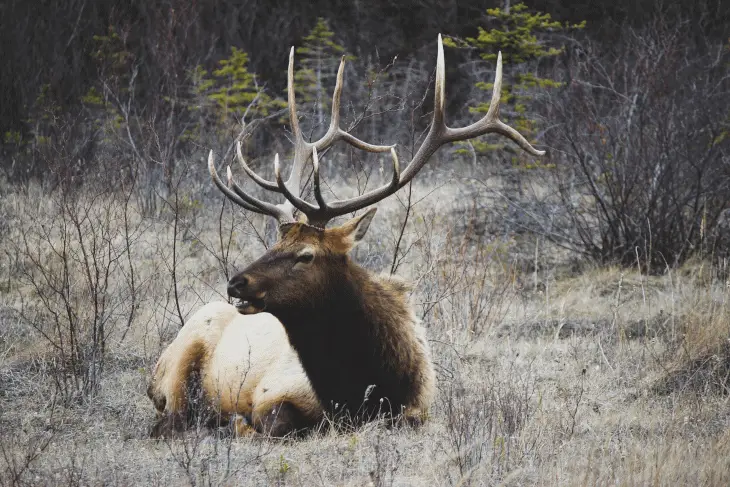
A Bowhunting License is Often an Additional License
We mentioned this earlier, but because we know a lot of people scan the headlines of an article without actually reading it, we’ll mention it again. A standard hunting permit usually applies to specific types of weapons; for other types of hunting weapons (such as bows, crossbows, and muzzleloaders), additional permits are often needed, as are additional classes. It may cost a little extra, too.
Licenses Allow You to Hunt Specific Animals
This is something that people who are totally new to hunting sometimes need to be reminded of: your license will allow you to hunt a specific number of a specific type of animal. It’s not an allowance to go out and harvest as much as you can. Different states allow different hunting opportunities—and different restrictions.
Basic hunting licenses usually cover a few types of animal—deer is usually the most common—but depending on the wildlife statistics of that state, may include/dis-include other species from the regular license.
If, for instance, a state has an animal population that is too high and that population is causing property damage and endangering the lives of humans, the state may decide to include that animal in a regular license, so that more hunters will go after that species, and cull it to non-dangerous levels.
Oppositely, a certain species may not have as many numbers in a given state, and that state will only let a few hunters go after that species. That’s often the case with big game, and hunters need to apply for a special tag for that game.
Licenses and Tags are Different
A tag is basically a ticket that allows you to hunt a specific type of animal. Tags are usually reserved for big game, like deer, bear, elk, moose, bighorn sheep, and so on, but they can be required for smaller game, too, if the population of that species has dipped in a certain area.
Usually, when you get your hunting license, that hunting license will include tags that you can use on certain animals, and you may be required to buy more tags if your hunting license doesn’t include them. For instance, if, when you get your hunting license, your hunting license comes with one tag for a deer and one tag for a bear, you’re allowed to hunt one deer and one bear that year. If you want to hunt another animal—an elk, let’s say—you would have to buy a tag for an elk.
Here’s the rub: in states / areas where there are a lot more hunters than there are hunt-able animals, tags are usually limited, and there’s usually a lottery to see who can get them.
Not every state has tags, but at the time this article was posted, Virginia, Texas, Tennessee, Ohio, New York, Louisiana, Illinois, Georgia, Florida, California, and Alaska have them.
Bag Limits and Possession Limits are Also Different
For other animals—usually smaller animals that aren’t big game—you may not need a tag to hunt them, and you are instead bound by a bag limit (which is the maximum number of a specific type of game you can harvest in one day) or a possession limit (which is the maximum numbers of a specific type of game you can have in your possession at any single given time). In some cases—usually where the species is a nuisance or invasive—there is no bag limit.
Again, check with your state to find out what the rules are. They make ’em, we don’t, and if you hunt an animal that you think has no bag limit but actually does, you can get in serious trouble.
You Are Not Guaranteed a Hunting License
Unfortunately, if you decide you want to go out bowhunting for the first time, and you make this decision in late October, well… you may be waiting until the next year to head out.
There are a number of ways you can miss out on getting a hunting license—they’re not like drivers’ licenses, where everyone can go and get one at any time. You usually need to take a class to get one, and classes can fill up (or if you live in a huge state, all the classes within your area can fill up, leaving classes that are hours and hours away); certain licenses can be a first-come / first-serve sort of operation, and spots can be limited—which means spots can run out, and you don’t get a hunting license; and sometimes, you may simply miss the filing deadline.
So, if you’re preparing for your first hunt, keep an eye on the calendar. And if you’re a veteran hunter who’s a procrastinator… keep an eye on your calendar.
The Penalties for Hunting Without a License are Severe
Can you get in trouble for hunting without a license? You sure can. Penalties range from fines (anywhere from hundreds of dollars to thousands), to misdemeanors (usually in addition to fines), to felonies (yes, felonies, and actual time in prison).
If you’re new to hunting, you may have heard the word “poaching,” but not understood its significance. There are a few cardinal sins in hunting, and poaching is up there. It’s the illegal capture and/or hunting of wild animals, and technically, hunting without a license is poaching.
There are some instances where you don’t need a license to hunt—in New York state, for example, farmers are not required to have a license if they are hunting small game on their property (and remember, that’s “small game” as defined by the state of New York)—but those instances are the exception to the rule. If you’re hunting, you need a license, period, or you’ll pay the price.
As we mentioned, the penalties related to hunting can be really serious, and over the last few years, have included:
- $120,000 in fines accompanied by a multi-year hunting ban for baiting waterfowl (if you’re unfamiliar with the term “baiting,” we’ll discuss it below);
- $100,000 in fines and a year in a federal prison facility for illegal airborne hunting; and
- $73,534 in fines and two years in a prison facility for leading hunting tours to persons who did not have hunting licenses.
If you want to read more, Outdoor Life did a great write-up of wildlife violators and the penalties they faced.
You Can Hunt Out-of-State, But…
You’ll need to learn about that new state’s rules and regulations, and get a license to hunt in that state—and that usually means taking that state’s hunting and/or bowhunting education class, as well.
Fees and costs are usually a little bit higher for out-of-state hunters—and that’s fair, for visitors to the state, who don’t live there year-round—and sometimes they can be quite a bit higher. State websites usually refer to out-of-state hunters are nonresidents, so that’s the language you should look for.
Out-of-state hunting can make for a great vacation, and it can be a great way to hunt game that may be off-limits in your own state. If you do try to arrange out-of-state hunting, you’ll want to get a jump on the process as early in the year as possible (and we’ll talk about that below).
You’re Not Stupid; State Websites are Totally Confusing
We’ve avoided it this entire post, but we’ll make our Dad Joke here:
a lot of state websites can be a bear to navigate.
Sorry! Had to do it.
There is an incredible amount of information, based off a lot of state laws, that come into play when you’re hunting, and it can be really difficult to parse through everything. Even the good state websites—the ones that provide all the information you need, in an organized way—are still kind of hard to read. There’s just a lot to know.
So, be patient, and…
Here’s the Best Bit of Advice in This Entire Post
If you’ve got questions, call the state’s hotline and ask. A lot of hunting departments actually have a live human being on the other end of the line, and they’ll answer whatever questions you have. It’ll save you a LOT of time and frustration.
Be polite—the man or woman on the other end of the line is a person, and probably gets a lot of calls from confused and frustrated newbie hunters—but trust us on this one: it is so. much. easier to call the agency that handles hunting in your state, than poring over dozens of webpages. Looking online for the requirements, etc.—and maybe misinterpreting those requirements—is not nearly as easy as calling.
You Can Get in Trouble if You Have a License and Don’t Have It On You
If you complete all your paperwork, take the hunter’s ed course, and get caught hunting without it, it’s like you never had it in the first place, and you’re open to fines and other penalties. Sometimes, the conservation officer / ranger / whomever, will let you go without a ticket—but those instances are rarer and rarer over the years, so always have your hunting license on you.
Many of the people who get caught without a license are the ones who forgot to renew it, and that happens—quite often, as a matter of fact, so be sure you renew if you need to.
If You Lose a License, You Need to Replace It
Just as in our last section, if you don’t have it on you, it’s like you never had it in the first place. If you misplace your hunting license and can’t find it, look online at your state’s website (and call your state’s hunting agency directly) and see what you need to do to replace it. It’s usually not too much of a headache.
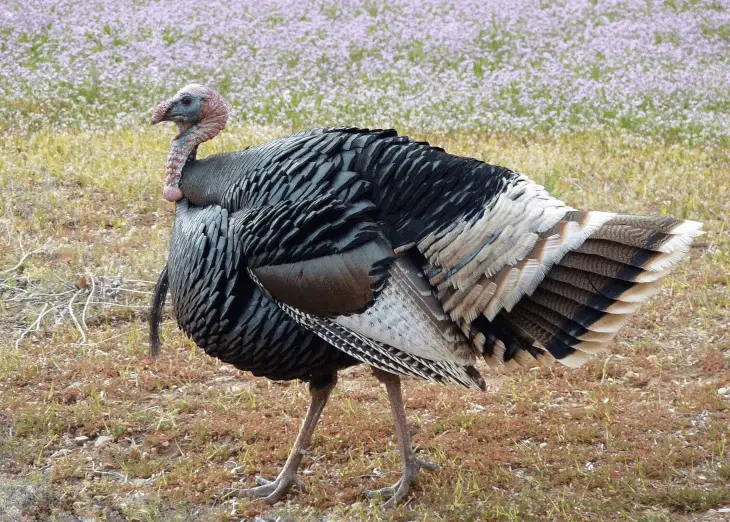
The Rules and Regulations Regarding Licenses Change Frequently
This is another thing to remember: some state rules and regulations rarely change, and others change a lot. Hunting rules tend to be rules that change a lot, and—we say this to our kids, and it’s true for us adults, too—just because you don’t know the rules doesn’t mean you won’t get in trouble if you break them.
It makes sense that hunting rules would change, and ultimately, it’s a good thing—as game populations change year to year, and as hunters develop new tactics and strategies, state officials need to chance the state laws to ensure the environment is being conserved properly, and that species are being kept healthy.
Luckily, you usually don’t have to go coming through your state’s bylines to see what’s new—many sites have a “Changes to the Hunting Rules” section on the front page of their hunting website, and we DEFINITELY urge you to check that out.
You May Not Be Allowed to Hunt with a Crossbow
Heading into the woods with a crossbow is a relatively new development in the world of bowhunting, and there’s a lot of controversy surrounding the issue. Some states allow hunters to use crossbows, and other states do not.
If your state does allow you to use a crossbow, find out
- If you need a special permit to hunt with it;
- If you need to take specific education classes to hunt with it;
- If you are only allowed to hunt specific game with it; and
- Whatever else your state allows/disallows.
Here’s a great example from the website for the state of New York that deals with crossbows. As you can see, there are plenty of regulations when it comes to crossbow usage, and (at the time this post was written) New York hunters need to complete a training course, attain a specific hunting license, and use a crossbow that meets certain limb width, draw weight, and overall length specifications.
You May Need a License, Even If the Game is On Your Property
Again, it depends on the state you live in, but don’t assume that just because an animal is on your property, you’re allowed to hunt it. Each state has very specific rules regarding hunting on your own land.
Here’s an example: in North Carolina, a landowner *or a person leasing land for cultivation,* his/her spouse, and his/her dependents under the age 18 *residing with them* can hunt on their land without a license. That’s a very specific set of people!
Certain Groups Are Offered Discounts
States rightly want as many people hunting as possible, and they offer certain groups certain opportunities. Those groups include, but may not be limited to:
Activity-Duty Military Members or Veterans. There are often discounts for armed forces members and veterans, and many states actually offer free licenses for active-duty members.
Minors. Hunting may be one of the last “adult” things we let kids do, and many states allow them to have hunting licenses, with some states allowing children as young as 12 to obtain them. They’re usually a little more affordable than adult hunting licenses, as well.
Disabled Persons. Many states encourage disabled persons to hunt, but special types of permits may be required, especially when the disabled person needs to use modified weapons.
Senior Citizens. The good news: senior permits usually = discounts! The bad news: some states don’t consider you a senior until age 70, so again—have we mentioned this before?—you’ll need to check with your state.
Native Americans. This is another state-to-state issue, and Native Americans (sometimes from certain tribes) may be afforded discounted hunting licenses, and may not require a license at all if they are hunting on reservation land.
Some States Offer Multi-Year or Lifetime Licenses…
…and they can be a great way to save money over the long run. Here’s an announcement from the state of Ohio discussing multi-year / lifetime licenses.
Multi-year and lifetime licenses tend to be a lot more expensive that regular licenses—they usually run a couple hundred dollars, if not more—but they’ve become very popular in recent years.
Keep in mind, you’ll need to make sure that 1) you’ll be hunting for the rest of your life, and 2) that you’ll be in your state (or able to get back to it) for the rest of your life, otherwise that lifetime hunting license doesn’t make fiscal sense. If you’re sure of those two things, though, it can be a great option.
If you can’t afford a lifetime hunting license—and many of us can’t!—states sometimes have raffles, where they draw for a lifetime hunting license, and the lucky winner doesn’t have to renew every year.
Depending on Your State, You May Not Be Allowed to Hunt on Sundays
It’s true! In some states you can hunt on Sunday, and in some states you can’t. For a lot of us who are only able to hunt on the weekends, that makes Saturdays a busy (and crowded!) day.
As with each of these items, you’ll need to follow up and see what your state’s regulations have to say about things.
The “Buck” Stops with Your State
More wordplay! Sorry. What we’re trying to say is, “Your state is the be-all, end-all authority when it comes to bowhunting rules and regulations in your state.” You’re going to find a lot of advice on forums, on websites that aren’t as amazing as this one, and in your hunting community. Some of it is good, and a lot of it is bad, and totally wrong.
Always consult your state’s website—and even better, call your state’s hunting department—when you want to know something.
That About Wraps Up Our “Intro to Licenses” Course…
We hope this helps you out, and steers you in the right direction! As with most things in life, your first time is perplexing, and then after that, everything seems very simple. It can take a little patience to get your hunting license, but—well, that’s a good thing, because hunting takes patience, too! With a little effort, you’ll have your license, and the whole process will seem very simple your second time around.
That’s it for today—good luck, have fun, and happy hunting!

